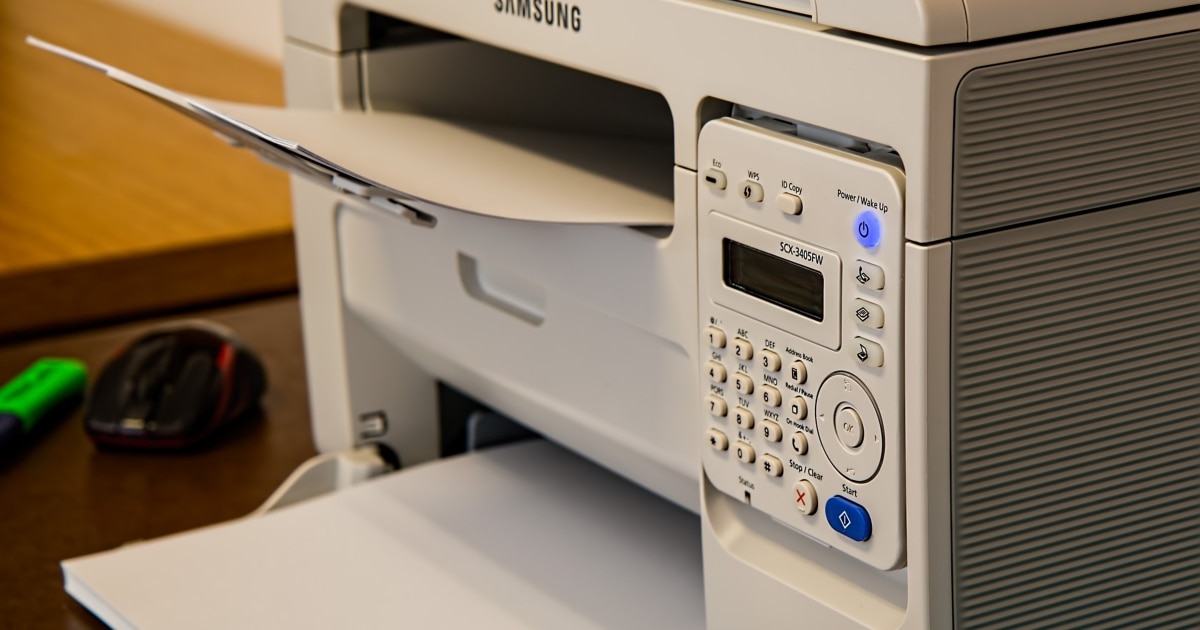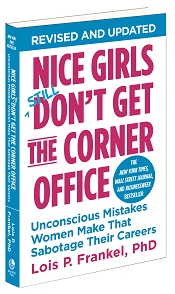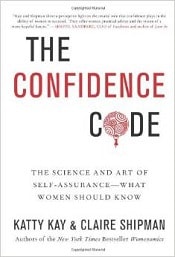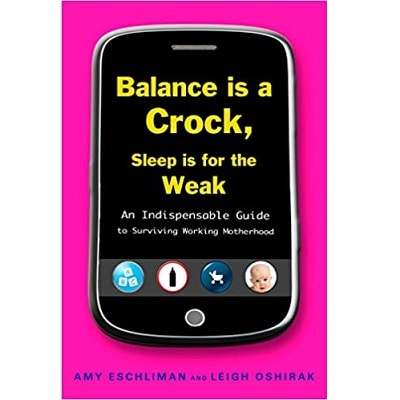This post may contain affiliate links and Corporette® may earn commissions for purchases made through links in this post. As an Amazon Associate, I earn from qualifying purchases.

Can you reply to a fax with email? Particularly in the work context — does a faxed letter from a colleague require another fax in reply, or is it acceptable to respond with an email message? What if the differences in communication are due to an age difference between you?
Reader M wonders:
I've got a question about professional correspondence. I work in a boutique transactional law firm that rarely handles any matters in court, and if so, it is uncontested and just needs to proved up. I find that when older attorneys need to communicate with me on something, they tend to prepare actual letters and then send it via fax.
Is it unprofessional for me to respond with an e-mail? Our office is mostly paperless and even the courts have gone to an e-filing system, so printing a hard copy of a letter just seems unnecessary. If I keep the language in my e-mail formal, is that enough?
Interesting question, M! We've talked a lot about correspondence, including when to use last names, the best way to send thank you notes after interviews (and when to send follow-up emails), hyphenated names and email addresses, and conveying tone in emails.
I'm really curious to hear what the readers say about this dilemma. For my $.02:
Understand that the other person's preference may be due to the fact that's how it's always been done in your specialty field, or due to their experience that a faxed letter offers more reliable (or easier) proof of receipt should the matter go to court — it may also be written better and held in higher esteem by a fact finder.
Know what your supervisor's preference is. If these are YOUR clients and you're the partner, then it's your call. If you aren't sure (and aren't comfortable asking), I would set your default to whatever the first correspondence was — fax, email, letter, etc.
Identify the respect issues. Note that if you're the young'un to the party, some people may take this as a sign of disrespect (your emailing instead of faxing). It may not be there for every person or every situation, but do recognize that they may be present.
Readers, what are your thoughts — must you fax a response, or can you send one via email? In general, as technology changes (and different people in the office adopt it at different times), how do you step around those issues of youth and respect that always seem to come up in those scenarios?
2021 updated images via Stencil. Originally pictured: 74/465+1 Send/Fax, originally uploaded to Flickr by Dave Crosby.
Some must-read business books for women — update coming soon!






Anon
What is a “fax”?
rosie
I don’t think you have to fax back just because someone sent you a letter via fax. If the sender has an email address, I would use it. If you need to respond with a letter, not an email, to keep it more formal, you can always email the letter as an attached PDF.
Anon
This. If I’m worried about proof of receipt (official notices etc), then I email a PDF of the letter and send the original via overnight delivery.
SC
This is what I would do as well.
Must be Tuesday
This is what I do too.
anony
Just ask. I am not young and just last week had to deal with an older attorney who represents one of the defendents in a case I am handling (he was a name partner when I was in lawschool). He was happy to communicate and confirm receipt via email.
Julia
If I didn’t know them, I’d fax back – but you don’t need to print and fax – our copier/fax/mega machine lets us “print to fax.” There are a ton of web services like eFax that let you do the same. If I was working with a particular person, I’d ask them if they had a preference. My personal attorney prefers to mail hard copies, which is annoying because I just scan them in. If I kept everything in paper format, I’d need huge file cabinets in my home office – no thank you.
E
It’s 2015 why are we faxing anything? I’d respond via email in an effort to force them to get with the times.
Dewd
Have you ever worked with an old man? You can’t force them to do anything.
Especially learn.
Especially technology.
tesyaa
I don’t know, my dad is in his 90s and he’s not super up on technology but he knows how to use an iPod :)
Idea
That would be so funny, if these ancient men were hip to the devices at home (picture them living in a Jetsons smarthouse or something) and then acted like Encino man in a time warp at the office. Entirely possible.
Monday
I had an old male boss once who refused to learn what Track Changes was, and how to turn it off. He would send me marked up documents at any time of day, night, or weekend, and ask me to return them ASAP “without red lines.” I tried explaining numerous times by every medium. I know this kind of complaint is a cliche, but I think it can be as much of a gender and power thing as it is an age thing.
marketingchic
This. I constantly have people mad at me because they can’t change the print range on an Excel document. I think if you can share cat videos on Facebook, you should be able to handle “fit all columns.”
anon-oh-no
whatever. that is what assistants are for.
TO Lawyer
Plus a million. I keep getting told “I don’t trust computers”
Alana
Many IT people do not trust computers, or at least they are quite aware of the risks of hacking and viruses and the imperfections of technology. The more complex a system is, the more fragile it is, all else held equal.
tesyaa
I have a doctor who prefers faxes to email attachments. That’s the only person I ever fax. If someone is in a position where they fax regularly, they really need easy access to a scanner.
mascot
I think the medical field has a whole other set of worries that cause them to rely on faxes/snail mail. I know of plenty of practices that prohibit or severely limit email communications with patients.
Killer Kitten Heels
I’ve encountered this, and the explanation I got was that faxes are “more secure.” I guess because the fax machine is safely in the secure medical office, while the email is just floating around the interwebz, or something? It didn’t make a whole lot of sense to me, TBH, but it’s what I was told.
S3K
Faxes are a lot more secure than emails. It’s much harder for a hostile third party to intercept a fax in transit than to intercept an unencrypted email.
Anything sent over the Internet, including email, passes through multiple hands before it reaches its destination. If any one of those pairs of hands is malicious, whatever goes through those hands could be read–or even altered–in transit. This is why we have SSL/TLS for secure websites. Unfortunately, there’s no widespread equivalent to SSL/TLS for email. Email is, therefore, insecure.
Faxes, like phone calls, pass few comparatively few hands from origin to destination and the relevant authorities take a very dim view of people who interfere with phone connections.
Don’t use unencrypted email for anything sensitive.
AnonPhD
Late chiming in, but as someone who regularly liaises with medical teams, patient privacy policies specify that unencrypted email is not a secure method of communication and allow for fax, encrypted email, and snail mail options for communication of documents.
Ellen
I think peeople fax b/c it is suposedly MORE secure then email. Peeople can take e-mail’s and fake addresse’s, but with faxes, they come from SPECIFIC telephone number’s to specific number’s.
In my firm, the manageing partner will NOT use the computer at his desk. Instead he has LYNN fax him thing’s to his home. Even tho Margie is alot younger, he does NOT allow her to use the computer she has for any busness thing’s. Margie does not care b/c she has alot of discretionary spendeing money from the manageing partner, and uses it to buy thing’s for her and the baby. Right now, she IS involved in planning the firm’s “Spring FLING”, where we are all getting ticket’s for a Broadway show followed by dinner in the FIRST week in April. Margie is in FULL charge of getting all of us ticket’s includeing for guest’s. I hope to be abel to have a boyfreind by then, who can be my date. Dad say’s that all partner’s should have date’s for this event, which is suposedly black tie, b/c we are all goieng out to eat at a VERY fancy restrunt.
I have to quick find a boyfreind — it is onley 2 month’s away. But I do NOT want to take just any schlub just because he has a winkie. I want the rest of the firm to see that I have some discretion over who it is that I bring to this fancy affair. YAY!!!!!
Anonymous
I agree that it’s 2015, but some courts operate like it’s 1985. Trial courts in my state routinely fax papers to my office.
anon
I would bet that anyone who still faxes regularly also has an assistant who likely manages the email account (if one is listed). S/he probably just prints off emails and gives them to the attorney, which is essentially a fax anyway.
Anon
I think this is a silly thing to be concerned about in this day and age. I work with old men who fax, and still… you can only stress about so much. Send the email.
Really?
How is this an interesting topic for a post — or one that might be reasonably broadly applicable to a decent number of readers? Faxing is a problem that really happens that often? Not trying to be snarky; I am just surprised.
lucy stone
I get settlement emails faxed back to me with “NO” written on them. This is a thing.
e-faxes
this blog also posts 3 posts a day 5 days a week, 52 weeks a year. Sometimes she answers less common questions, she can only answer: “how do you answer the phone in an office?” so many times. and if it’s helpful to the person who wrote the question, why does it matter how many other readers find it helpful?
Anonymous
I wouldn’t just send an email. To me that’s a big step down in formality. I’d send a letter as a PDF attachment to an email though.
Anon
Carrier pigeon.
Anonymous
Pneumatic tubes.
rosie
Fox them!
Idea
Fox them!
e-faxes
also, did anyone else know about “Faxpapers”?? I just read this recently, I had never heard of them!
http://gizmodo.com/faxpapers-the-lost-dream-of-delivering-newspapers-thro-1682383694
Gail the Goldfish
My old firm had a policy that they would not communicate with opposing counsel via email. I found it archaic and a waste of time and resources, especially since opposing counsel usually would send us an email, then I’d have to call them and say “sorry, we don’t accept X by email, please fax.” Bill .1 for call. Yea, get with the times.
e-faxes
can you get set up with e-faxing capabilities? I worked in an office that received a lot of faxes, but they all came in to a folder on a shared drive as PDFs. We could then save or email the PDFs as needed. And then when sending back to that person we would send the finished letter to ‘Fax’ in the print settings and it would appear as a fax on their end. That way you stay paperless on your end, but they don’t know anything is different from their perspective. For me this would be even easier than trying to keep a fax-email-fax-email war going. ;)
Moonstone
I think this is the best option.
Anon
This is what we do as well.
anon2b
Yes, I use e-faxes a lot. If you get a fax it comes in your email so you can save the pdf directly to a storage drive. You can send a fax from your desk. It’s the bomb.
Glomarization, Esq.
+1 for e-faxes. I can count on one hand the number of faxes I need to exchange every year, but the aggravation I’d experience for not having fax capability is worth the cost of my e-fax solution. Which I just pass onto the client. Incoming faxes arrive as PDFs and I send out the same. I don’t print anything out unless a client or someone else asks for a hard copy.
For the folks saying “ugh, who faxes, nobody does that anymore” — there are niche areas, persnickety courts, etc., who do business by fax. No need to snark.
purplepear
I think it’s funny that there’s only one comment that recognizes e-faxing. We have a lot of clients that like to fax for various reasons. E-fax makes it as simple as an email. The email is the cover letter and the attachment is the fax. We’ve used various providers in the past.
e-faxes
i was surprised, too. I didn’t realize I was on the cutting edge of things!
ugg
I worked in an architect’s office where the one remaining “old guy” refused to learn more recent updates of AutoCAD. This was in 2005-ish, and we were working off of AugoCAD 14. AutoCAD 14 was released in 1997, and AutoCAD 2000 was released in 1999 (of all years). There were 5 – 6 releases of newer versions of AutoCAD until I quit there in 2005. AutoCAD stops providing technical support about 2-3 versions back. And then they stop, and require you to purchase the new release. I actually had to learn R14 because it did not contain some of the functionality that I knew and used from the 2000 version which I used at home/school.
New features! Smarter tools! Increased performance! Why wouldn’t you switch??
Because doing so would require you to learn how to use all of the buttons on a mouse.
Sunshine Sushi
“I’m sorry, but I cannot fax you anything because of where I live.”
“Where do you live?”
“The 21st Century.”
Chris Griffin
Either use an e-fax system or express outright your preference.
“I’m sorry, I don’t have access to a fax machine regularly, however, I can quickly respond by email.” If its a power trip, you’re being polite. If its not, you’re explaining why you’re not being accommodating. Heck, I hate faxing because there’s ONE fax machine in my building, on the far side from my office and its in another person’s office. I just e-fax and call it good.
Texasattorney
If this person is only using a fax, I would be concerned that for whatever reason they would not received or read my emails. For my own benefit down the line I would want to be able to prove up my correspondence with them. Therefore, they get faxes back. It would not be a courtesy thing, it would be a CYA thing. If you can establish this person can and does communicate by email, then do it. But if not, send them a fax. I have had counsel try to use the you can’t prove I got that email excuse before. Additionally, I have some attorneys I have worked with who firmly believe in NOT communicating with opposing counsel via email. They believe, and somewhat rightly so, that email is too instantaneous and that the tendency is to NOT think about what we say to opposing counsel. Emails are just popped off. Sometimes copying the wrong people. That is hard to do with a letter. You also do not create the same metadata trails with a letter. But the truth of the matter is that faxes are quickly becoming dinosaurs and we are just going to have to come to grips with reading emails before we send them and learning to correspond with counsel via email and take the good and the bad with it.
Jordan
Very informative post! I would definitely back up what most people here are saying in that it would be best to fax something back in this situation, especially if the person is older. I would worry about whether or not the email was received otherwise, since if the person is much more comfortable faxing, they more than likely do not care for email.
Dan
Well, if you received a faxed letter then I guess it’s the wiser thing to do to send another fax in reply. Email is probably acceptable without any harm in most cases, but you could never know that for sure.
Zonia
Fantastic piece , I loved the analysis – Does someone know where my business can get a fillable a form version to use ?
Lavelle Sappington
Hello Zonia . my assistant used a sample TX SOS Payoff Statement Form version here http://goo.gl/z7iXha you can get a fillable a form version to use